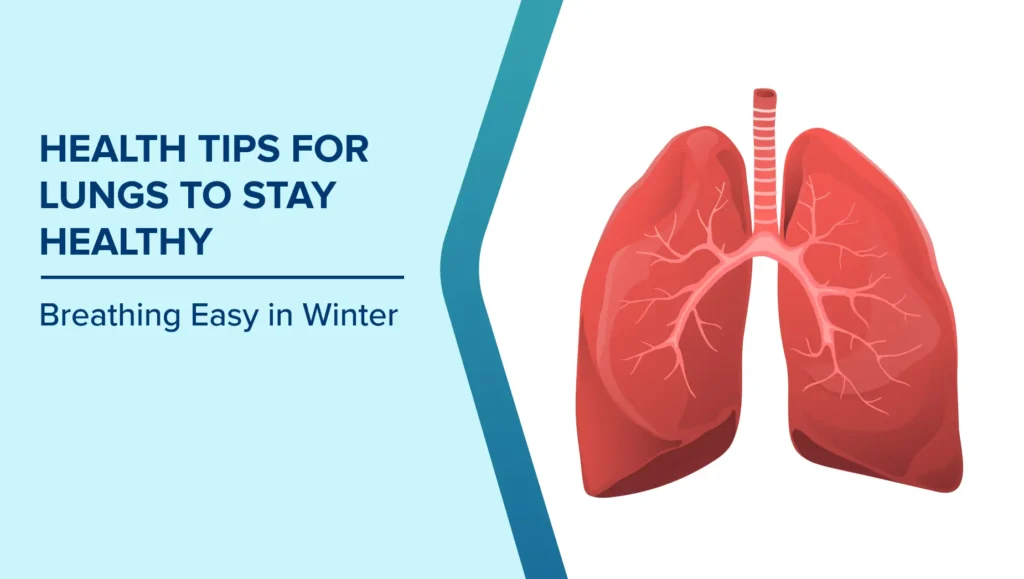
Introduction: Why Lung Health Matters
Your lungs are the powerhouses of your respiratory system — every breath you take fuels every cell in your body with oxygen. Yet, most people only notice their lungs when breathing becomes difficult. Maintaining healthy lungs isn’t just for those with asthma or COPD; it’s essential for everyone — especially in today’s world of increasing air pollution, sedentary lifestyles, and stress.
In this detailed guide, we’ll explore everything you need to know about lung health, from how your lungs work to practical tips on improving lung capacity, preventing diseases, and enhancing your breathing naturally.
1. Understanding How Your Lungs Work
Your lungs are vital organs responsible for exchanging oxygen and carbon dioxide — two gases essential for life. When you inhale, oxygen enters your lungs and passes into the bloodstream. When you exhale, carbon dioxide is expelled.
Each lung contains millions of tiny air sacs called alveoli, where this exchange happens. The healthier and cleaner your lungs are, the better this process functions, leading to improved energy levels, immunity, and endurance.
When your lungs are exposed to smoke, pollution, or infections, these air sacs can become inflamed or damaged, reducing efficiency and causing shortness of breath or chronic coughing.
2. Common Lung Problems You Should Know About
Lung diseases can be acute (short-term) or chronic (long-term). Some of the most common lung problems include:
- Asthma: Chronic inflammation that narrows airways and makes breathing difficult.
- Chronic Obstructive Pulmonary Disease (COPD): Includes chronic bronchitis and emphysema, often caused by smoking.
- Lung Infections: Pneumonia, tuberculosis, and bronchitis are common infections that damage lung tissue.
- Lung Cancer: One of the leading causes of cancer deaths worldwide, often linked to smoking and pollution exposure.
- Pulmonary Fibrosis: A condition where lung tissue becomes scarred, reducing oxygen transfer efficiency.
Early detection and regular checkups can help manage and prevent these conditions from worsening.
3. Signs Your Lungs May Not Be Healthy
Healthy lungs don’t make you aware of them — they work quietly. But when something’s wrong, you may experience:
- Persistent cough lasting more than 2 weeks
- Shortness of breath or wheezing
- Chest tightness or pain
- Fatigue or low energy levels
- Frequent respiratory infections
If you notice any of these symptoms, consult a pulmonologist immediately. Early intervention can prevent serious complications.
4. How to Keep Your Lungs Healthy
Your lungs have an amazing ability to repair and protect themselves — if you give them the right care. Follow these proven strategies for strong, clean, and healthy lungs.
a. Quit Smoking – The #1 Rule
Smoking is the leading cause of lung damage and lung cancer. Every puff introduces thousands of harmful chemicals into your respiratory system. Quitting smoking improves lung capacity and overall health within weeks.
If you’re struggling, consult a doctor about nicotine replacement therapies or counseling support programs.
b. Avoid Air Pollution and Secondhand Smoke
Air pollution can cause inflammation and reduce oxygen levels. Whenever possible:
- Stay indoors during high pollution days.
- Use air purifiers at home.
- Avoid burning incense or candles excessively.
- Wear a mask in polluted environments.
c. Practice Deep Breathing Exercises
Regular deep breathing enhances lung capacity and improves oxygen flow. Try:
- Diaphragmatic breathing (belly breathing)
- Pursed-lip breathing (inhaling slowly, exhaling through pursed lips)
- Alternate nostril breathing for relaxation
Practicing these for 5–10 minutes daily boosts lung efficiency and relieves stress.
d. Stay Physically Active
Exercise makes your lungs work harder — and stronger. Activities like brisk walking, swimming, cycling, or yoga increase oxygen uptake and stamina. Even 30 minutes of moderate exercise daily can make a big difference.
e. Eat a Lung-Healthy Diet
Your diet plays a crucial role in maintaining strong respiratory health. Include foods rich in:
- Antioxidants: Berries, citrus fruits, and green tea help fight oxidative stress.
- Omega-3 fatty acids: Found in fish and flaxseeds; reduces inflammation.
- Vitamin C, E, and beta-carotene: Strengthen immune defense.
- Magnesium-rich foods: Spinach, almonds, and avocados aid in better lung function.
Avoid processed foods, excessive salt, and sugar, which can cause inflammation and water retention.
f. Maintain Good Posture
Poor posture compresses your lungs and limits airflow. Sit and stand straight to allow full lung expansion. Simple stretching or yoga poses like cobra pose or cat-cow stretch help open your chest.
g. Stay Hydrated
Drinking enough water keeps the mucosal lining in your lungs thin, helping them function efficiently. Aim for at least 8 glasses of water daily.
5. Natural Ways to Detoxify Your Lungs
Your lungs are self-cleaning organs, but certain practices can help speed up the detox process:
- Steam inhalation: Moist air helps clear mucus and improve breathing.
- Warm turmeric milk: Turmeric’s anti-inflammatory properties help reduce lung inflammation.
- Ginger tea: Promotes detoxification and soothes the respiratory tract.
- Green leafy vegetables: Support natural cleansing and antioxidant activity.
6. Best Breathing Exercises for Stronger Lungs
Breathing exercises not only relax your mind but also strengthen your lungs. Some simple yet effective ones include:
- Box Breathing: Inhale for 4 seconds, hold for 4, exhale for 4, hold for 4 again.
- 4-7-8 Breathing: Inhale for 4 seconds, hold for 7, exhale for 8 — helps reduce anxiety and enhances lung performance.
- Humming Breathing: Inhale deeply and exhale with a humming sound. It keeps airways open and improves nitric oxide flow.
Practicing these daily enhances oxygen intake and boosts lung endurance.
7. When to See a Doctor
Don’t ignore signs like persistent cough, wheezing, chest pain, or unexplained fatigue. Seek immediate medical help if you:
- Cough up blood or colored mucus
- Have difficulty breathing even at rest
- Experience sharp chest pain
- Feel dizziness or confusion due to low oxygen
Early diagnosis through chest X-rays, spirometry tests, and CT scans can help detect issues before they become serious.
8. Tips for People with Existing Lung Conditions
If you already have asthma, COPD, or another chronic respiratory condition, take these steps:
- Follow your doctor’s medication plan strictly.
- Always carry your inhaler or prescribed medicines.
- Get vaccinated for flu and pneumonia.
- Avoid exposure to dust, fumes, or allergens.
- Keep your home clean and well-ventilated.
Regular follow-ups with a pulmonologist ensure better management of your condition.
9. Lung Health in the Modern World
With increasing urbanization, air pollution, and sedentary routines, lung health is at risk more than ever. According to the World Health Organization (WHO), 9 out of 10 people breathe polluted air, leading to millions of premature deaths each year.
To protect yourself:
- Support clean-air initiatives.
- Use indoor plants like snake plant, peace lily, and aloe vera to purify air.
- Limit exposure to indoor pollutants (smoke, chemicals, sprays).
Taking preventive measures today can help avoid lifelong lung problems tomorrow.
10. Quick Summary: Top 10 Tips for Healthy Lungs
✅ Quit smoking completely
✅ Avoid secondhand smoke and pollution
✅ Exercise regularly
✅ Practice deep breathing
✅ Eat antioxidant-rich foods
✅ Maintain proper posture
✅ Stay hydrated
✅ Get regular medical checkups
✅ Keep indoor air clean
✅ Stay positive and manage stress
Conclusion: Protect Your Breath, Protect Your Life
Your lungs are working every second to keep you alive — often without your notice. Nurturing them is not optional; it’s a responsibility. By embracing simple lifestyle changes, regular exercise, and a clean diet, you can keep your lungs healthy, active, and resilient for years to come.
Remember, healthy lungs = better oxygen = a healthier you. So, breathe consciously, live mindfully, and take care of your respiratory health every day.
References:



